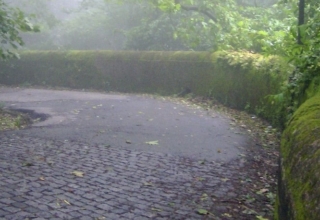
Our own country was preserved and founded on a little appreciated and little-known moment of genius on the part of a fellow named George Washington. With the far inferior and far weaker American forces at his disposal, Washington took on might of the United Kingdom with a truly genius strategy. Early enough in the game, Washington realized that he did not have to beat the English. He just had to not lose to them. He executed that brilliant strategy so well that even the British generals gave him full credit for sometimes miraculously extracting his troops from imminent defeat and capture by forces many times the size of his own. In the end, the Great Retreater won the field; in his time, on his ground. The rest is history.
Sometimes you create the future you deserve because you hold all the cards. At other times you win by knowing how to play them like the genius you can be so as to make the most of whatever you are dealt. The former is a view that makes sense in western culture but may not be quite as well received and understood in the east; which is more likely to appreciate the latter. In the west, creating the future and effecting innovation are dynamic, aggressive, even demolishing activities.
West and East
The western model of the future is all about subverting the status quo, precipitating dissonance, and replacing “what is” with “what should be” – never mind that the very nature of “should” is subjective and personal. They see things differently in the east. Their view is that the future is what the future will be. As innovation is the natural order of things that pass from one reality to another, the future is the product of an inherently transitory and well-ordered universe.
In the east, everything proceeds according to a perfect symmetry and cyclicality. Railing against the present is futile at best. As Lao Tzu observed: “To the mind that is still, the whole universe surrenders.” In that mindset, it would seem, the best way to effect change is not to try to make change happen but rather to perceive the way of the universe and fit into its flow. There is both a Taoist name and a practice for this approach. It is called “wu wei” which loosely translates as “the action of inaction.”
The practice of wu wei cultivates a mental state which, once achieved, aligns our actions effortlessly with the natural flow of life. Where the western mind insists on dissonance and precipitating change, the eastern mind seeks to unblock the natural flow of change and harmoniously embracing its energy to maximum benefit. Each culture can achieve its goals – but the way of getting there will necessarily be different. The manifested results are equally likely to be different, if not in substance than at least in nuance. When it comes to thinking, nuance matters.
In writing about Thinking Whole, we have sought to achieve the elegant balance between the way of the east and the way of the west because – clearly – in their own way, they both work. With a slight nod to the east, we have chosen a solution that is founded on “west AND east” rather than on “either west or east.”
Download Article
















